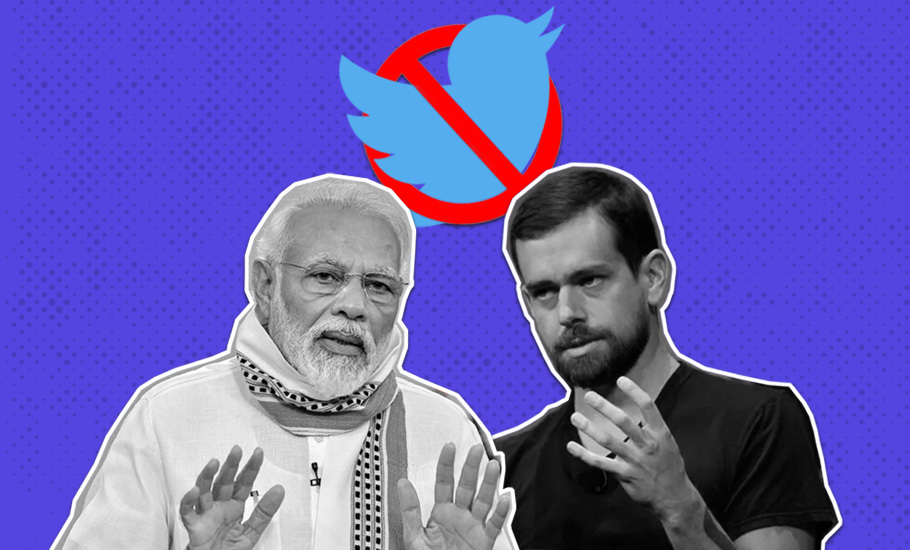
Twitter continues to remain defiant but it faces no-good options
Tensions between the government and Twitter specifically, exploded into public view this February over blocking of accounts related to farmers’ protests

Earlier this month, UN experts said that India’s controversial new digital and social media rules do not conform with international human rights norms. In a seven-page letter sent to the government on June 11, the experts said the regulations are in violation of rules laid down in the International Covenant on Civil and Political Rights.
The letter, penned by Irene Khan, Special Rapporteur on the promotion and protection of the right to freedom of opinion and expression, Clement Nyaletsossi Voule, Special Rapporteur on the rights to freedom of peaceful assembly and of association, and Joseph Cannataci, Special Rapporteur on the right to privacy, pointedly referred to the travails of one social media company in particular: Twitter.
Noting that the government had directed Twitter to shut down over 1,000 accounts on January 31, 2021, on grounds that these accounts were spreading misinformation about farmers’ protests, the experts said: “We worry that the new Rules may provide the authorities with the power to censure journalists who expose information of public interest and individuals who report on human rights violations in an effort to hold the government accountable.”
The experts added that “we are seriously concerned about the ability foreseen in the Rules to subject individual employees to criminal liability, given the availability of less punitive measures. The severity of the envisaged penalties incentivises the restriction of content and is likely to have a chilling effect on freedom of expression”.
Also read: What next in the tussle between government and social media firms?
Since June 11, the spat between the government and Twitter has only worsened, with cases being filed against its India chief over an incorrect map of the country and the company itself for allegedly having child sexual abuse content on their platform (Twitter says it has zero tolerance policy for child sexual exploitation).
Although the government had been making ominous noises about the need to rein in Big Tech for a couple of years – there had been a raft of policy proposals that ostensibly sought to hold these companies to account – tensions between the Centre and Twitter specifically exploded into public view this February over blocking of accounts related to farmers’ protests. Twitter’s pushback against demands to take down tweets – from ‘Pak-based’ as well as ‘Khalistani’ accounts – incensed the Modi government.
The controversy reached Parliament with Union Electronics & IT Minister Ravi Shankar Prasad telling the Rajya Sabha: “We respect social media a lot, it has empowered common people. Social media has a big role in the digital India programme. However, if social media is misused to spread fake news and violence, then action will be taken.”
The Centre also informed Parliament that IT rules were being amended to make social media platforms more responsive and accountable to Indian laws. Before the month was out, the government notified the ‘The Information Technology (Guidelines for Intermediaries and Digital Media Ethics Code) Rules, 2021’, giving all significant social media intermediaries three months (May 26) for compliance.
Also read: New rules for digital content vague, loaded with draconian clauses
Since then Twitter has been embroiled in a litany of charges – including but not limited to the Greta Thunberg-Disha Ravi ‘toolkit’ case, COVID-19 ‘India variant’ case, ‘blue tick’ controversies involving sundry ministers and RSS apparatchiks, and another ‘toolkit’ case, this one involving BJP spokesman Sambit Patra.
The company faces a more hostile regulatory environment now that the new IT rules have formally come into effect. The Centre has concluded that Twitter in India is no longer an “intermediary”, and therefore cannot be provided the legal protection that is accorded to intermediaries under Section 79 of the Information Technology Act.
Other US social media companies, including Facebook and Instagram, have complied with the new rules, including the requirement to announce and display on their websites the names of resident grievance officers, and sending the names of the nodal contact persons and the chief compliance officers to the government.
Twitter announced the appointment of Dharmendra Chatur as interim resident grievance officer, and assured the government in a letter on June 6 that it was working to make permanent appointments to these posts. It also said that it was in the process of finalising the appointment of a chief compliance officer.
Chatur, however, resigned soon and, according to Twitter’s website, his responsibilities were taken over by Jeremy Kessel, the company’s senior director of global legal policy. Kessel is a resident of San Francisco, not India, and his appointment is not complaint with IT rules.
Also read: Government seeks total control of media
This week Twitter advertised vacancies for a resident grievance officer, a nodal officer, and a chief compliance officer for India on its website. All three positions are based in Mumbai or New Delhi.
Regardless of what happens next, the fight between the government and Twitter is far from over. The microblogging site continues to remain defiant, but it faces no-good options: Not complying with the rules would pose a real risk to its operational environment, according to one expert. The company will need to go to court to defend itself each time criminal prosecutions are launched against it, Apar Gupta, the executive director of the Internet Freedom Foundation, a New Delhi-based digital rights advocacy group, told Deutsche Welle, the German state-owned international broadcaster. But adhering to all of the government’s demands would substantially change Twitter, he said. “Absolute compliance would mean heavy censorship of individual tweets, removal of the manipulated media tags, and blocking/suspension of accounts at the government’s behest.”


